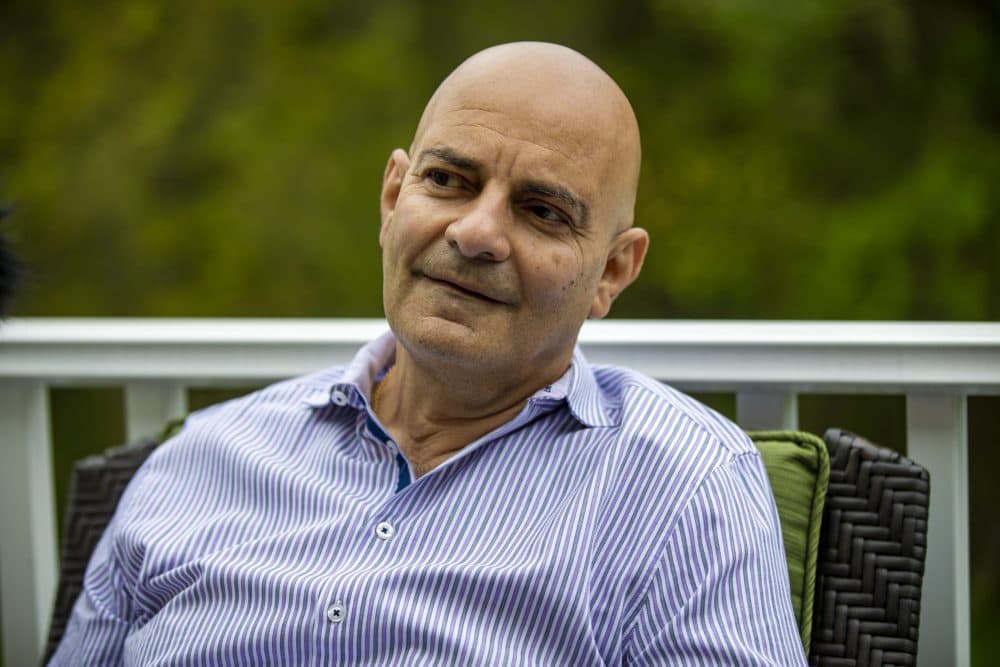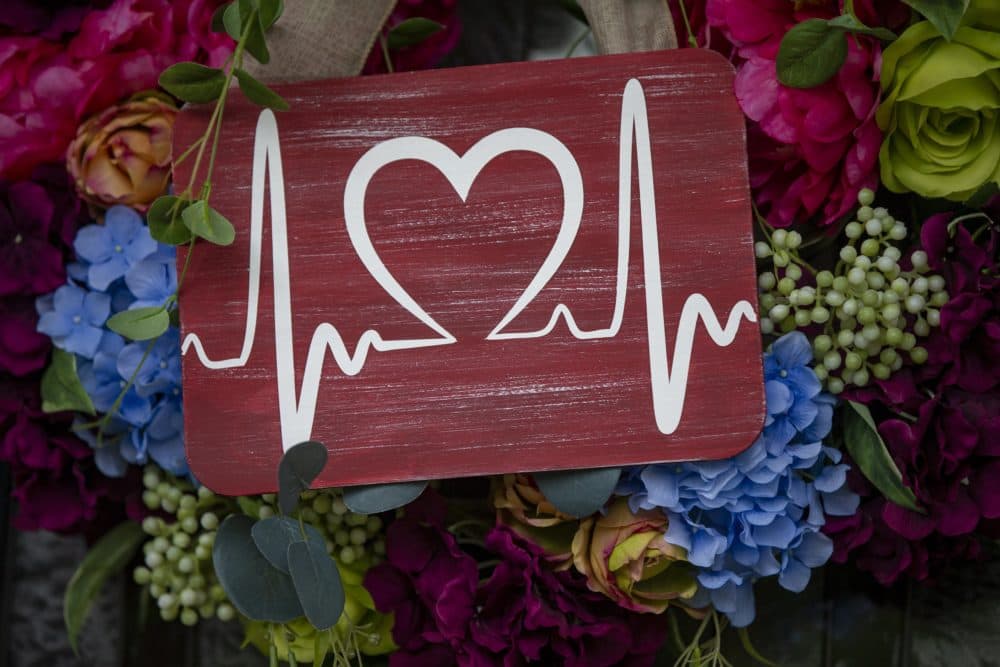Advertisement
Coronavirus Coverage
Old Idea, New Desperation: Can Plasma From Recovered Patients Help Those Now Battling COVID-19?
Resume
Lying in a COVID-19 intensive care unit bed, hooked up to a half-dozen tubes and wires, his lungs so ravaged by the virus he needed a ventilator to help him breathe, Dr. Nicolaos Athienites did the math, and the result was grim.
"OK. I am intubated. And I am close to 60. Male. Diabetic," he recalls thinking. "So my chances of getting out of here are less than 10%."
But he decided he would beat those odds.
"I said, 'With the help of science, my family, and God, I’m going to walk out of here.'"
And he did.
The science that helped him included a range of cutting-edge care for COVID-19 at Tufts Medical Center. He was enrolled in a trial of a drug called tocilizumab that seems to calm the immune system "storm" that kills some patients. And he would soon get the promising antiviral drug remdesivir.
But his wife, Jennifer, a former registered nurse, also wanted him to get convalescent plasma, an experimental treatment derived from the blood of recovered patients. The idea, stemming from a concept decades old, is that people who've beaten a virus have antibodies to fight it in their plasma, the liquid part of the blood — antibodies that could help sick patents who are still in the thick of their battle.
"That’s when I decided to go to social media, hoping to find a donor," she says. "The American Red Cross said if you do find a donor, then you’re more likely to get that plasma than just applying directly for the plasma."
She posted an appeal on Facebook saying Dr. Athienites desperately needed someone with B-positive blood who’d had COVID-19. The response was overwhelming — calls and messages 24 hours a day, even as she was coming down with a milder case of the virus. Hundreds of people sent prayers and well wishes, and quite a few offered their blood if it could possibly help.
Dr. Athienites is a South Shore kidney specialist who practices at several hospitals including the Lemuel Shattuck public hospital in Jamaica Plain. Many of his patients are low-income and older.
"You know, you become a patient of Nick, you never leave," Jennifer Athienites says. "They love him. He always runs 45 minutes late, and the reason he runs 45 minutes late is because when he’s in the room with you, you know he has all the time in the world."
It was an outpouring of goodwill from patients and their families, colleagues and friends, and neighbors in the town of Easton. But Dr. Athienites was sinking fast, and all that goodwill couldn’t translate into immediate help, Jennifer says.

"The problem was, it’s like a good five days — which I didn’t realize — to actually find somebody, get them tested, make sure they’re a good candidate and all of that," she says.
Fortunately, plasma already in storage at the Rhode Island Blood Bank came through. Within a couple of days of getting it, and the antiviral drug remdesivir, Dr. Athienites began to get better. He was soon well enough to be weaned off the ventilator. And a few days after that, he was wheeled out of the intensive care unit. A hospital staffer captured the cheers of his caregivers lining the hallways.
Just 17 days after he was admitted to the hospital, he came home to Easton, where his neighbors applauded him as he slowly climbed the front steps, with a lot of help from the handrail.
So — how much credit does the convalescent plasma deserve for that victorious homecoming?
"I think this is the $64,000 question," says Dr. Andreas Klein, who oversees the convalescent plasma program at Tufts Medical Center. And he says at this point, we just don’t know.
The plasma does seem to be safe, he says. And plenty of doctors on the front lines have stories about patients like Dr. Atheinites who get convalescent plasma and then get better. But they’re not simple stories because these are very sick patients getting multiple treatments.
"It’s a full-court press, all hands on deck," he says, "and we’re doing many, many things at once to help individual patients, and so it’s hard to tease apart what the contribution of one thing versus another is."
Only a rigorous clinical trial of convalescent plasma can do that, Dr. Klein says. One such study is now getting under way at Boston hospitals, aiming to compare 220 hospitalized COVID-19 patients who either get convalescent plasma or don’t. And Tufts is running a national registry of volunteers who've recovered from COVID-19 and are willing to participate in research.
Dr. Klein expects COVID-19 convalescent plasma treatment to evolve rapidly. Right now, one donation to the American Red Cross or a state blood bank helps one or two or three patients; soon, he expects “pooled” plasma from multiple donors — a more concentrated and possibly more potent product that’s treated more like a typical drug.
"And that’s going to probably happen as we go into the summer," he says. "So there will be even more opportunities for people to donate plasma as we go on."
Among the people who’ll be donating are Nick and Jennifer Athienites. And they encourage others among the tens of thousands of other Massachusetts people who’ve tested positive to do the same.
"I do think the most important thing about the plasma is it's something that should be easily accessible," Jennifer says, because so many people have had the virus and can give repeated donations.
Dr. Athienites will never know the identity of the person who donated the plasma he got, but he knows what he would say if they met: "You probably saved my life.'"
And slowly but surely, he’s getting his life back.
"Every day, I’m stronger," he says. "My endurance, and just the ability to do something without needing oxygen."
He's aware of the need for definitive data, but he does believe the convalescent plasma helped him, along with some divine intervention.
"So people ask me, how did you make it?" he says. His answer: "With science, smart doctors, toculizimab, convalescent plasma, remdesivir — and God. Beating the chances requires beyond human assistance."
This segment aired on May 22, 2020.
